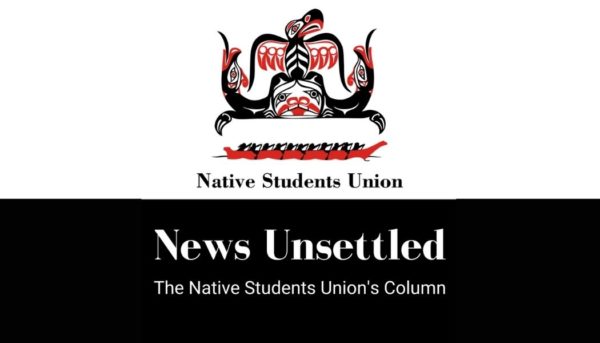
Graphic provided by the Native Students Union.
If you don’t have answers to some of these questions, do you know who you can ask?
Is it easy to ask these questions? How does it feel in your gut or body to ask?
Who is organizing the action? Are they an established collective, and what are some examples of their past work? Have you and the people that you love and trust had positive experiences with their organizing?
How did you hear about the action? From who? Do you trust this person? Where did they hear about it from? These questions also form chains of accountability and relational responsibility — if you experience harm or the organizers not living their own ethics and values, who in particular do you have relationships of accountability with?
Are there plans to escalate the action such as confronting police, breaking colonial laws, inciting arrests, and what are they? How do you fit in?
Are their care plans in place for before, during, and after the escalation?
What measures are being publicly stated to account for folks with disabilities in the organizing? For example: ramps, rides, food and drinks, rest spaces, an American Sign Language interpreter.
Are you being given time and space to consider your needs and wants? Do you feel you have free, prior, and informed consent over your engagement?
Is information shared in advance, in print or by word of mouth? Who can you ask for the truth of the matter, and who is responsible to you for who they vouch for and how this works out?
How much time are you given to consider your choices? Is it always last minute, in the moment, and where are the opportunities for deep reflection and questioning?
Have you slept recently? Eaten, drank water? Are your basic needs met to make decisions about your body and safety right now? Will organizers help you to meet these needs?
Is the information that is shared via social media graphics congruent with what you hear from word of mouth? Why or why not? Who is at risk of increased harm based on incongruence (things not matching up), and who stands to benefit?”
Where are you?
Whose lands are you on right now? How are those peoples in relation to this organizing? Are they involved in the leadership of this organization, and in what ways?
What are your relationships with local nations? Are you in relationship with select individuals, or large collectives? What do they think about this? Are they in positions of leadership, and who put them there? Have they been reached out to by the organizers, are they involved in leadership? Are they treated with respect, dignity, and centered in decision making?
Where are you from?
Who are you?
If your relatives see you there, are they more likely to come? Do you feel confident bringing in your whole community — your grandparents to your nieces, nephews, niblets, or children?
Are you certain you can vouch for this? If not, how will you communicate this to those that look to you and trust you?
What are your own limits? Who are you, and who are the people surrounding you? Do you share experiences of race, ethnicity, ability, parenthood, mental health, housing, citizenship, connection to community, age, or experience with community organizing?
If there are differences between you and others: how does that contribute to risk or reward? Who is at increased risk of harm and violence? Whose needs are being centered by the organizers?
What are your access needs? For example, do you need a place to sit or lie down, being able to stay warm, access to childcare/being able to bring your kids, transportation to and from events, et cetera. Have the organizers already taken these into account? Is the responsibility on you to bring them up? How does that feel? Who can you ask to help meet your access needs, and how do they treat you?
What are your exit plans? Who will you bring with you? If you are arrested, who will look after your pets? Have the organizers created plans or resources for networks of care? Who will bring you, your spouse, or your family meals?







